
Ginger Hollander, Staff Photographer
Much of the work of William Shakespeare has been so deeply integrated into Western culture that it has become cliché. We know so many of his stories, so many of his thematic beats. We utilize them over and over again across so many artistic mediums. He is elemental, perhaps, at times, to the point of being boring.
Which makes it especially exciting to experience those of his works that have yet to fully cross the membrane into popular culture, those of his works that—even after all this time—reject the premise of William Shakespeare being a writer who holds no further secrets.
Enter “As You Like It,” directed by Dan Bachman ’17. It’s a colorful and daring adaptation of a Shakespeare play that is, if not obscure, at least lesser known than it deserves to be. As someone with only a cursory familiarity with the play, I found myself delighted by all the unique and deeply intentional surprises Bachman has injected into his production. Like all of the best adaptations of Shakespeare, this one gets by on the Bard’s language, and an exceptional director’s sometimes-messy-and-overstuffed-but-always-meaningful vision.
It’s important to Bachman that “As You Like It” is, perhaps, not the most archetypal of Shakespeare’s work.
“It’s both the Shakespeare play that I’ve seen the most and the one I know well that I think gets mentioned the least,” Bachman explains. “Not only is there no expectation like in signing a contract; with ‘As You Like It,’ there’s no expectations at all. I imagine half the audience, if they’re only casual Shakespeare fans who read him in high school, they have no familiarity with this.”
Even if you’re a Shakespeare wonk, you’ll likely be surprised by Bachman’s production, which feels experimental, adventurous, and singular in a way that many more “faithful” adaptations cannot. Take the set for example: A collection of large colorful geometric blocks that resemble those used by young children in kindergarten. It’s the Bard as filtered through Ilya Bolotowsky. According to Bachman, this both addresses the strange combination of fantasy and history in which Shakespeare stages his play and allows the production to finds its own setting outside of historical or geographical context.
“The time period is very vague,” Bachman explains. “I can’t place it anywhere.”
This malleability is crucial to the success of the adaptation. Imagine a production where one character wears traditional Tudor finery and another wears a wrestling onesie. Imagine a production that, at times, seems to dispense with space and time, to exist solely in the realm of theater. It’s not revolutionary for theater to gesture towards its own artifice, yet here it feels uniquely unpretentious. That acknowledgement of performance is ultimately crucial to what Bachman is using Shakespeare’s original language to say. At its core, “As You Like It” is deeply concerned with performativity (it is perhaps best known for its “All the world’s a stage” monologue). Still, this production turns that concern on its head and discusses performativity not just as an organic feature of living, but as a sort of dishonesty which must be addressed as such.
Jack Warren ’20, who was cast as the Jacques—a “sad man of the forest” in Warren’s words—reiterates this. They explain how their character’s journey is ultimately about discovering the “hollowness of the world” in spite of his philosophizing, and humor.

Ginger Hollander, Staff Photographer
“For this production,” Warren emphasizes, “we are trying to preset a Jacques who is sort of aware of his cohorts’ performativity, who is growing aware that just as all the world’s a stage all of these people who supposedly care about these things are pretending.”
This emphasis on performativity never distracts from the visceral potence of the performances, however: Each actor and actress appears to be deeply and thoroughly invested in their character. This is a powerful contrast, and one that only further emphasizes the dedication of the cast and crew in crafting a production that goes beyond mere adaptation. For all the unique vision and experimentation, there’s also a clear love of the language and history of the play, a necessary counterweight to some of the strangeness on display in Bachman’s final product.
The playfulness of Shakespeare’s writing is wonderfully embodied by these actors. Bachman and company understand that, despite the Bard’s reputation as perhaps the most intimidating part of any high school English curriculum, Shakespeare was never pretentious in his time. He could be philosophical and poetic, but he was also riotous, bawdy, silly, and even vulgar. The Elizabethan language flows organically from these actors’ mouths, and Bachman understands it just as well, his substantial cuts (down from roughly 25,000 words to a mere 10,000) never hindering the play.
Stage Manager Hugo Kessler ’19 says that, for all the fluidity of the final product, the process of creating it was intense.
“We had such a short amount of time to put up an entire Shakespeare show,” he explains.
You wouldn’t know if from the production that came out of the process, which is daring, deliberate, and punctuated with numerous moments that drive home why Shakespeare remains so fascinating to so many actors and directors. It’s a play that hums with the passion of all involved, a messy and worthwhile labor of love.
As Bachman explains, “I wanted to put together a show that I love and do something different. Do something interesting.”
He should be happy to know he succeeded.
“AS YOU LIKE IT” will run in the WestCo Cafe at 8 p.m. on Thursday, Friday, and Saturday.
- Ginger Hollander, Staff Photographer
- Ginger Hollander, Staff Photographer
- Ginger Hollander, Staff Photographer
- Ginger Hollander, Staff Photographer
- Ginger Hollander, Staff Photographer
- Ginger Hollander, Staff Photographer
- Ginger Hollander, Staff Photographer
- Ginger Hollander, Staff Photographer
- Ginger Hollander, Staff Photographer
- Ginger Hollander, Staff Photographer
- Ginger Hollander, Staff Photographer
- Ginger Hollander, Staff Photographer
- Ginger Hollander, Staff Photographer
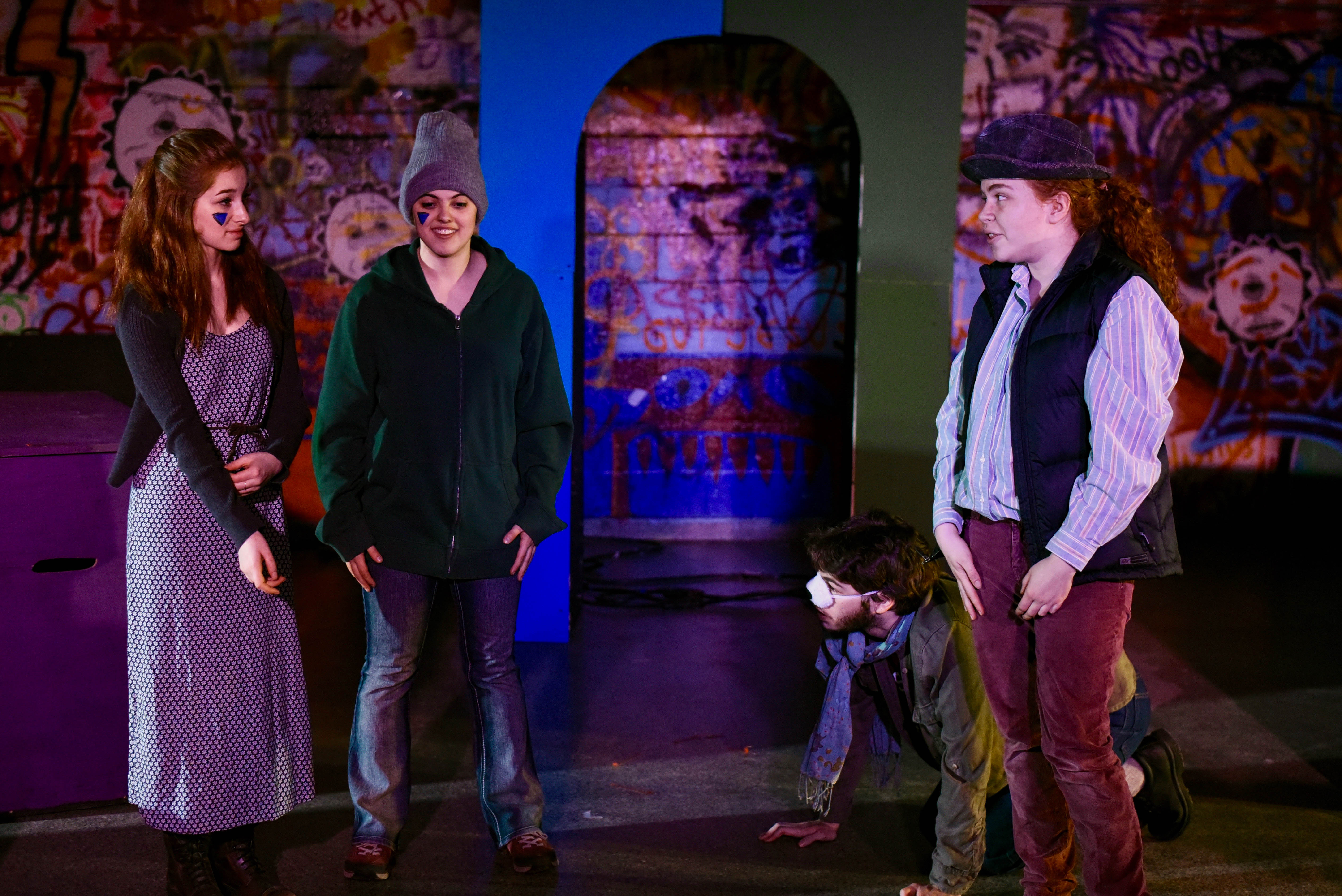

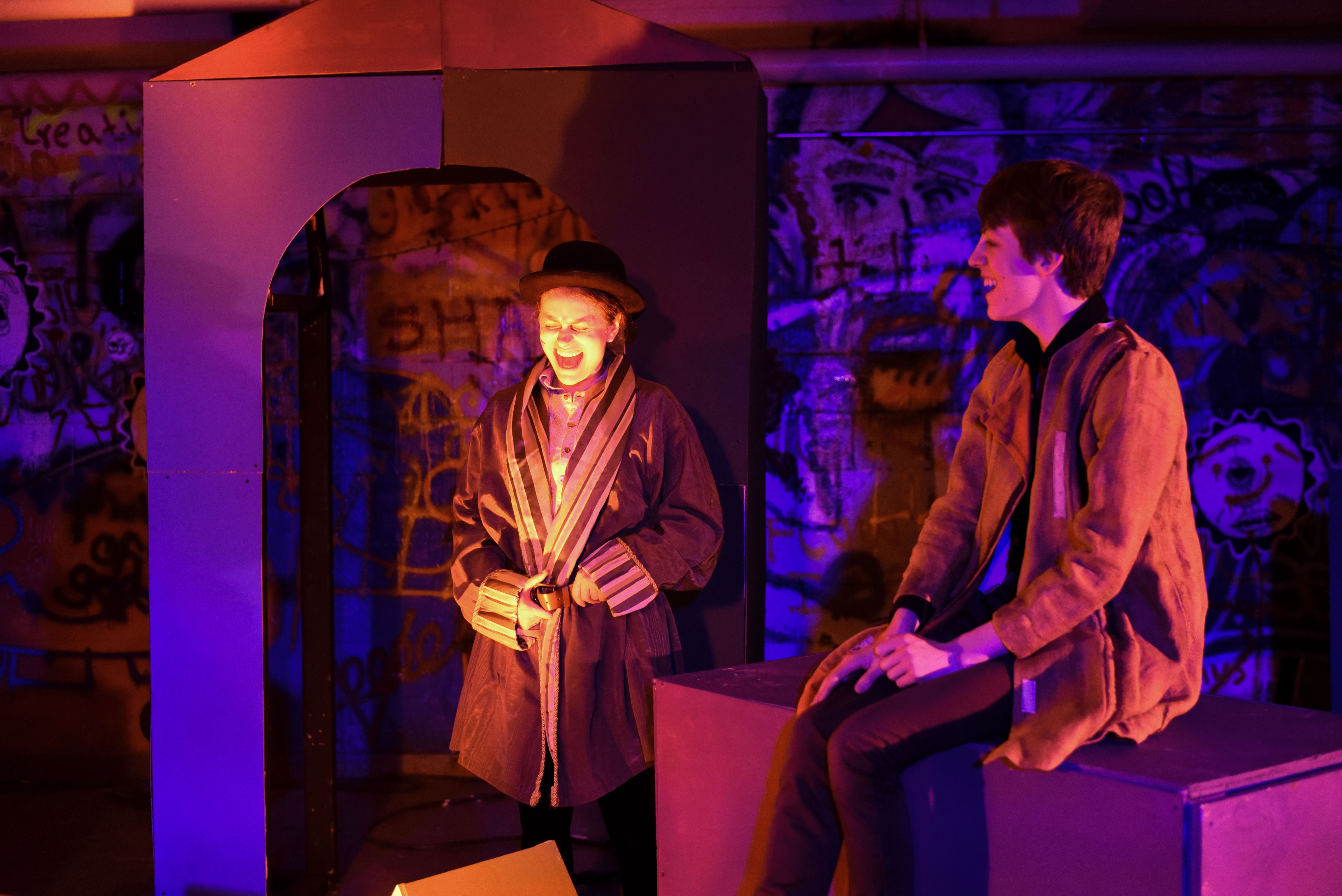


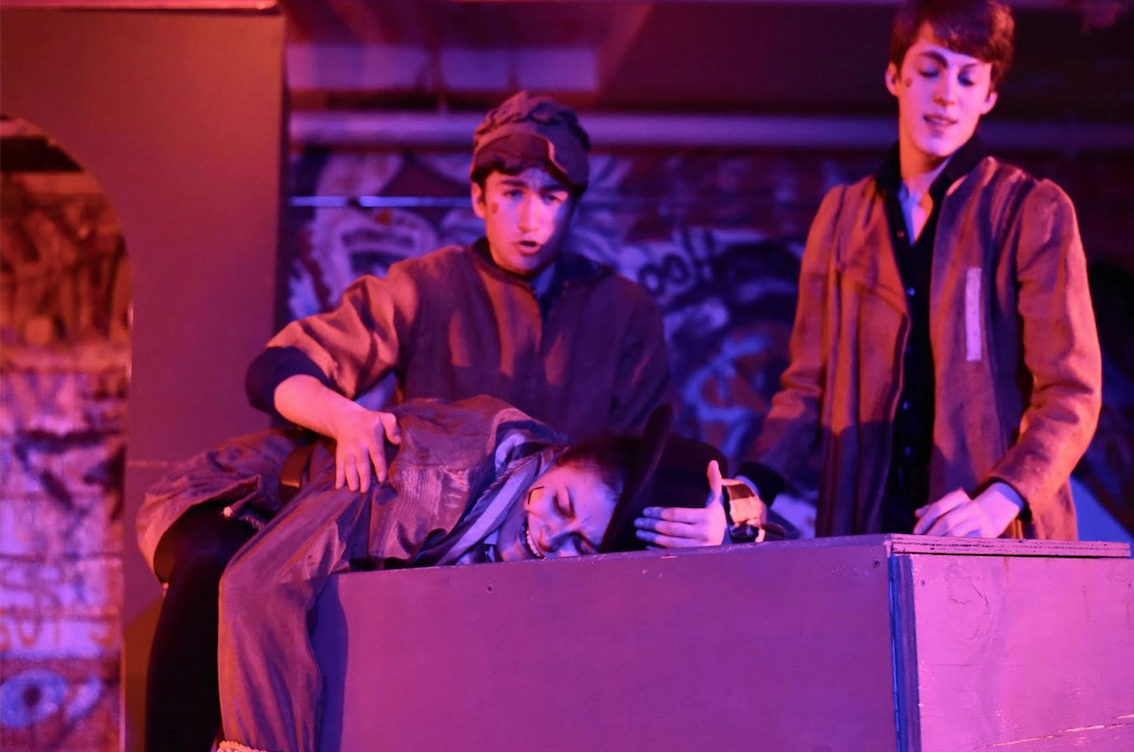

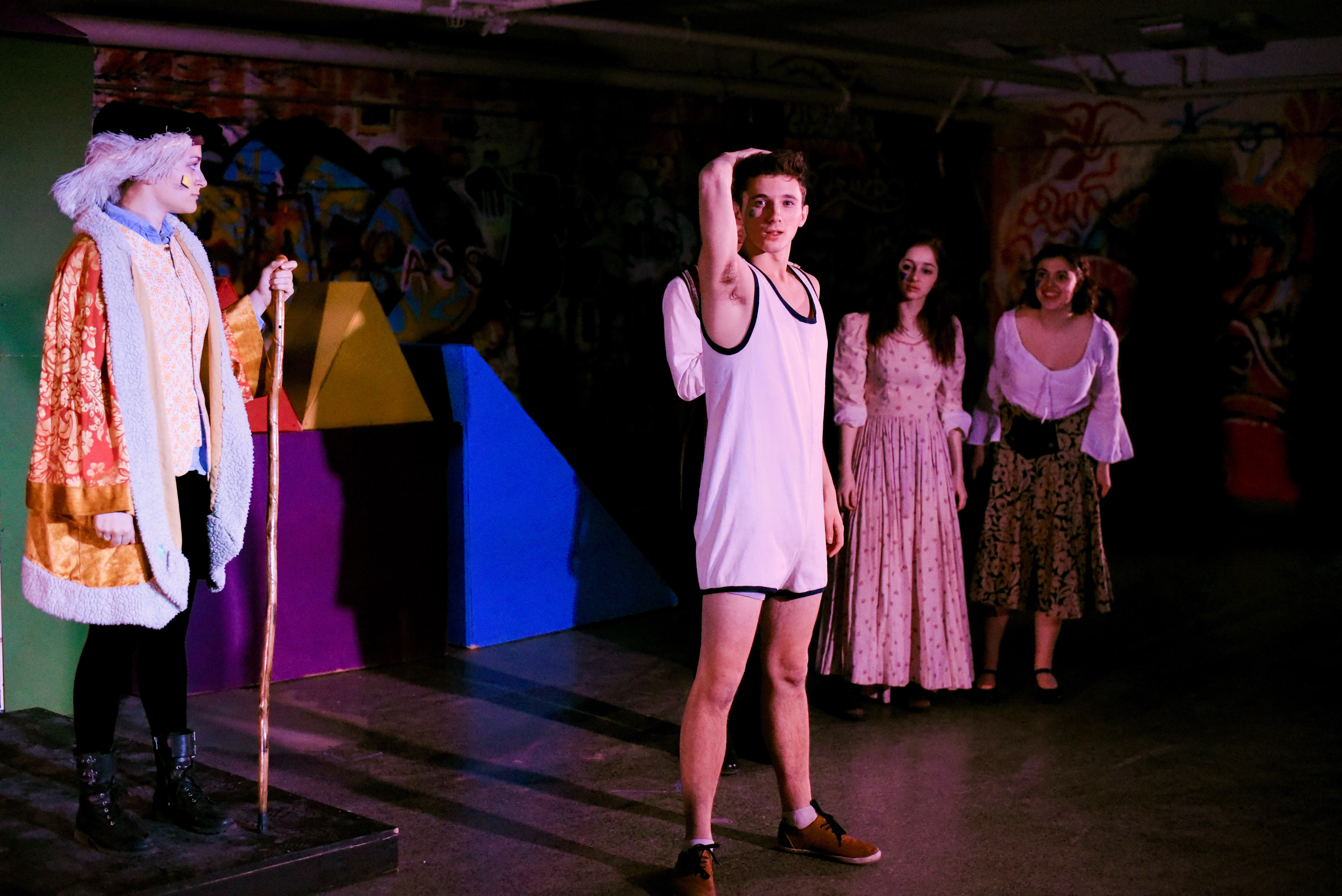
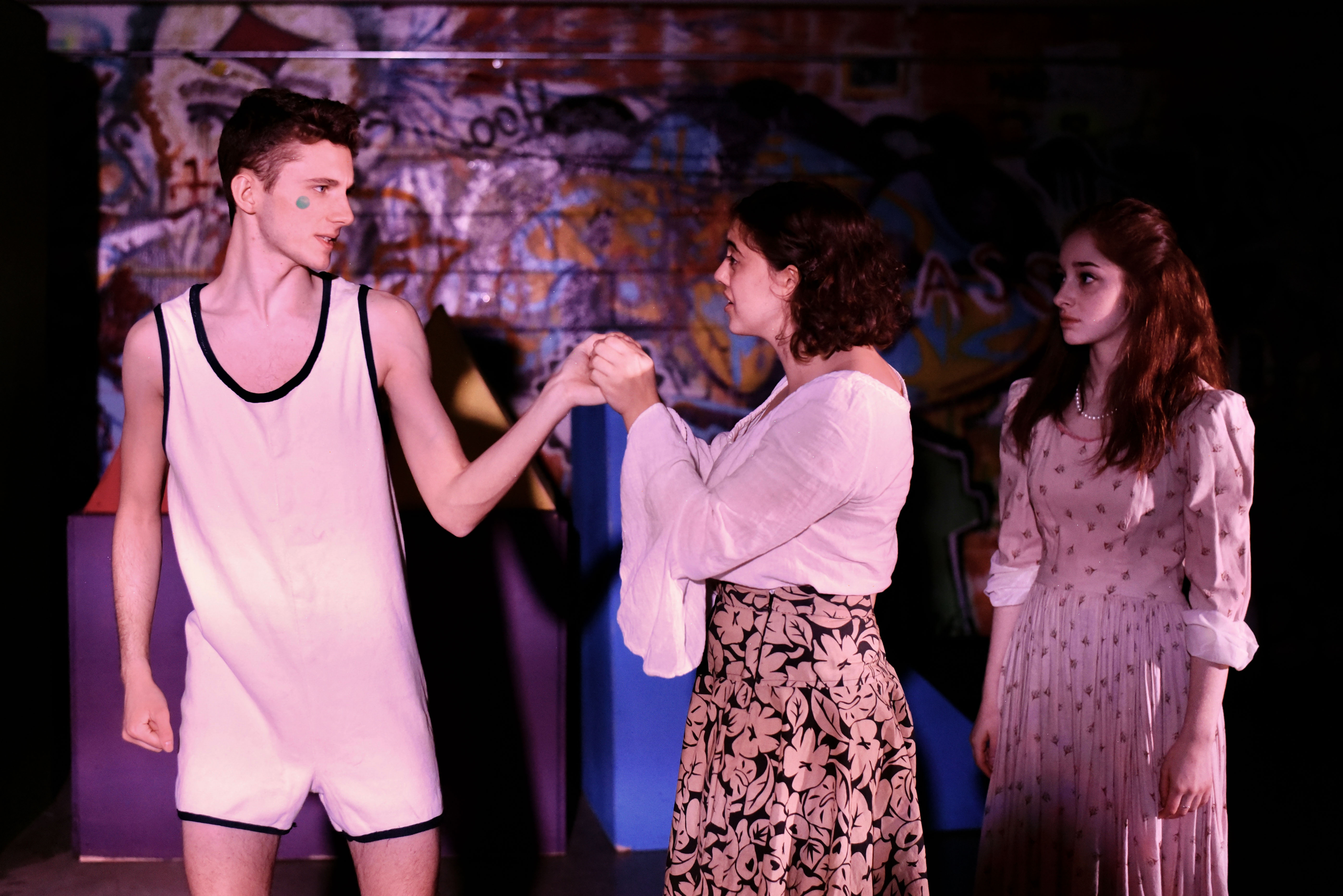
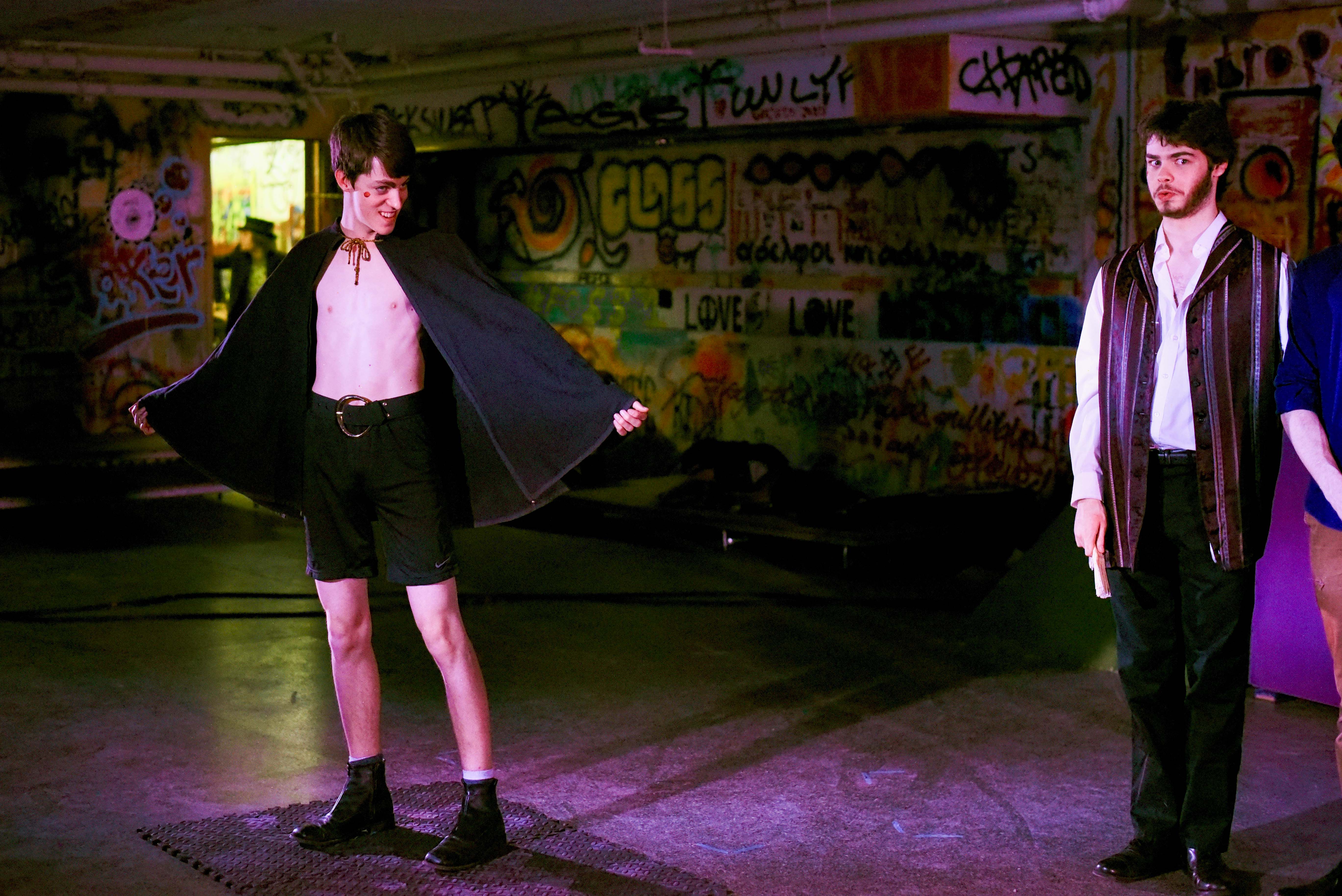

Comments are closed